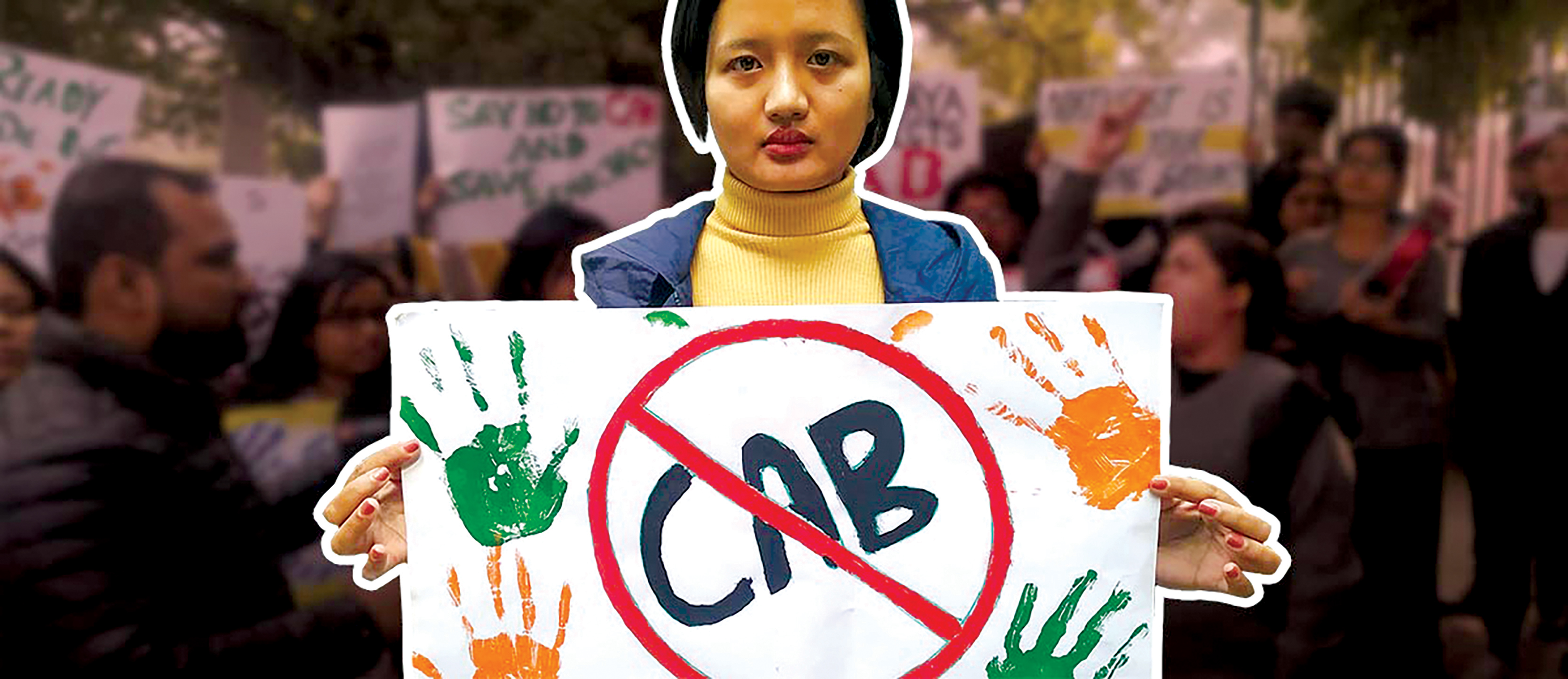The legislation ‘directly violates the secular ideals enshrined in our Constitution’, the protesters say
On Monday night, the Lok Sabha passed the contentious Citizenship Amendment Bill, 2019. The Bill, a promise made by the incumbent BJP in its election manifesto for last May’s general election, is an updated version of a similar legislation that was introduced in the Parliament in 2016 but got stuck in the Rajya Sabha.
On Tuesday, protests broke out against the Bill in different parts of the country. Most of the Northeastern states witnessed a complete shutdown, while students and other citizens in the national capital took to the streets as well. Bikram Bora, a PhD student from Assam at the Jawaharlal Nehru University, who was at a protest on Sansad Marg, said their objection to the legislation was over two key aspects. “First, it poses a serious threat to the language, culture and resources of the Northeastern states, an economically backward region that cannot afford more migrants,” he explained. “Second, the Bill directly violates the secular ideals enshrined in our Constitution.”
Bora’s concerns were echoed by a number of people from the Northeast. Since it was first introduced three years ago, the Citizenship Bill has faced sustained opposition across the eight states in the region.
Apparently sensing the anxiety over the Bill in the region, the Narendra Modi government has offered some concessions in the 2019 version of the legislation. Among other things, it does not cover the areas in the Northeast protected by the Inner Line Permit and the Sixth Schedule of the Indian constitution. The permit, or ILP as it is popularly known, is required by outsiders to travel to places designated “protected areas”. Introduced by the British, it is aimed at protecting “indigenous cultures”.
Such concessions, however, do not appear to have assuaged the fears of the region’s people. “We only have to go back to 1994, when there was an attempt made to revoke the ILP in the Northeast. There is every possibility that the current government will pass legislation and do that again,” said Zuali, a PhD student at JNU who hails from Mizoram, a state protected by both the ILP and the Sixth Schedule. “What happens to us then?”
The demonstration at Sansad Marg was joined by students and citizens from across Delhi. Activists from the All India Students Association, Students Federation of India, Krantikari Yuva Sangathan also participated and spoke out against the Bill.
As the day progressed, another group of protesters, mobilised by the campaign group United Against Hate, held a demonstration on Jantar Mantar Road. They stormed the office premises of the Janata Dal (United), which supported the Bill in the Lok Sabha, and later burnt copies of the Bill.
Nikita Chaturvedi, a member of United Against Hate, argued that the Bill was an attempt by the Modi government to keep Muslims away from the composite fabric of this country. “But India has always been a secular country and must remain so,” she asserted. “We must resist this Bill and protect our constitution.”
Some of the protesters linked the contentious Bill with the government’s noises over extending Assam’s National Register of Citizens to the whole of India. “Since all the communities except Muslims that have entered India until 2014 will be given citizenship through this Bill, in the event of an all-India NRC, only Muslims will be selectively thrown out as non-citizens,” said Tauriq Alam, national secretary of the Indian Youth Congress who was at the protest at Jantar Mantar Road.
Even though the legislation has been passed, protests are likely to intensify in the days to come.
www.newslaundry.com





